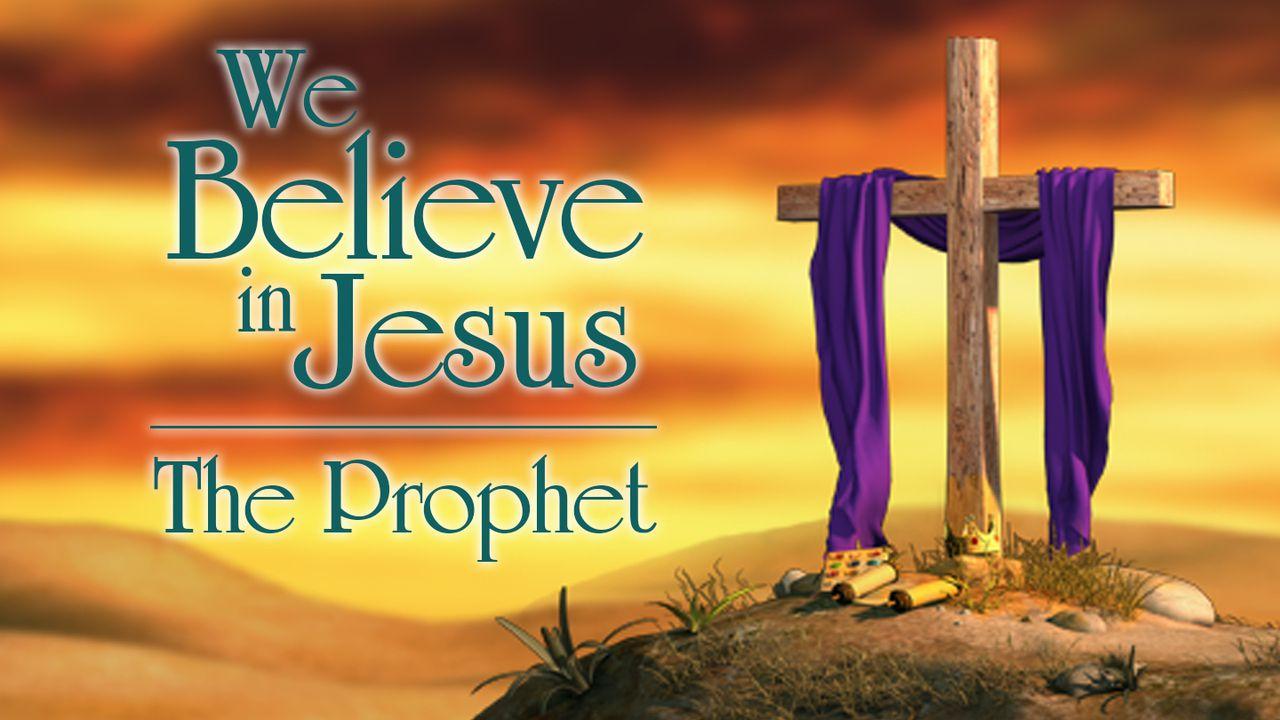We Believe In Jesus: The ProphetSample

Given God’s Word: 2 Peter 1:20-21
The Holy Spirit inspired prophets to speak whatever God commanded them. True prophets could do nothing else when they prophesied. But when we compare the ways different prophets in Scripture spoke, we can see that divine inspiration did not mean that prophets had no control over their words. On the contrary, the Holy Spirit utilized the prophets’ personalities and perspectives as he infallibly presented his prophetic message through them. In this regard, the inspiration of prophecy was identical to the inspiration of all other Scripture.
Consider the way Peter spoke of the Holy Spirit’s inspiration of prophets in 2 Peter 1:20-21:
No prophecy of Scripture came about by the prophet's own interpretation. For prophecy never had its origin in the will of man, but men spoke from God as they were carried along by the Holy Spirit (2 Peter 1:20-21).
As we see here, the Holy Spirit superintended the words of true prophets in the Old Testament. And this guaranteed that their words were authoritative and infallible.
The Holy Spirit worked through the personality and the perspective of the particular prophet that he was dealing with. I guess that the traditional framework for understanding that theologically is “organic inspiration,” that God works through his servants, through his prophets, and uses their personality, uses their particular point of view, uses their education and the lack thereof for his purposes. I guess one could also think about using the doctrine of sanctification and understanding how God takes things that are human, earthly and physical, and sanctifies them for his own purposes to use them for his own means, and he does that with the prophets as well. With that said, though, I think there are instances within the prophetic literature where you’ll see God actually dictating to the prophets, you know, “You need to go and say this to the people,” and Isaiah or Jeremiah or Ezekiel, they go and they say it. So, there is, there are points within the prophetic literature where God will dictate to his prophets, but at the same time, God uses who they were, and didn’t override their personalities in bringing forth his prophetic work for both Israel, ancient Israel, and the church. – Dr. Mark Gignilliat
Scripture
About this Plan

This reading plan investigates the doctrine of Christology, focusing on the person and work of Jesus Christ. Jesus is God in the flesh, the center of all history, and the only hope for the salvation of humanity and creation. This plan explores Jesus' fulfillment of the Old Testament office of prophet.
More
Related plans

Collide

Is God Really Trustworthy?

Strength for Singles - Lessons From Sampson

Spiritual Training: The Discipline of Fasting and Solitude

5 Steps to Standing Strong in Spiritual Warfare (For Women)

Gospel Courage | Share Your Faith | a 3-Day Devotional

Kingdom Masculinity

Celebrate

The Way to True Happiness
